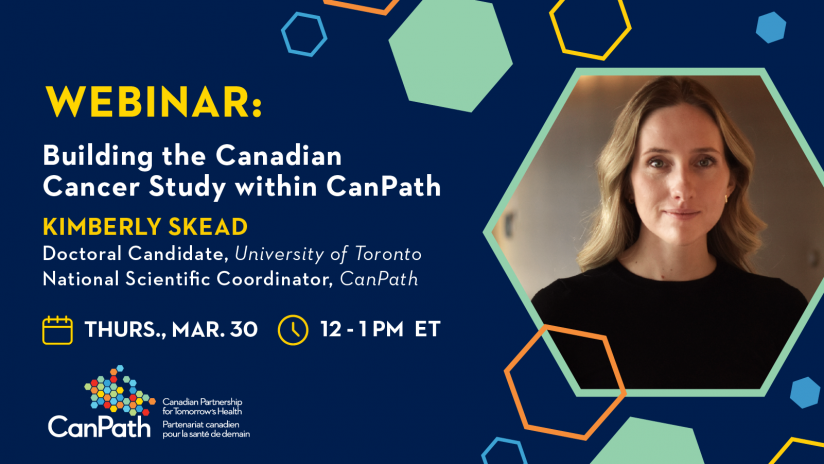Webinar: Building the Canadian Cancer Study within CanPath

About the webinar:
Streams of big data are finally coming together to help us understand cancer and predict it earlier. CanPath is building the Canadian Cancer Study to advance research and discovery for cancer, the leading cause of death in Canada. As the first program to bring together national population health cohort resources with administrative-level data and provincial cancer registry data in one central location, CanPath is reducing barriers and increasing data accessibility to advance Canadian cancer research. Researchers will be able to access a ready-made dataset that would otherwise take them a year or more to bring together since they would have to compile it themselves by contacting each provincial data holder for the same information. The Canadian Cancer Study is ultimately paving the path to understanding the needs of people with cancer by leveraging the full potential of large data sources. Join the webinar to learn about progress towards building the Canadian Cancer Study, and how CanPath data and biologics, coupled with linked clinical outcomes can be used to identify biological signatures associated with increased cancer risk and, subsequently, develop novel early diagnostic tools able to identify cancer years prior to clinical onset.
Download the webinar slidesDownloadAbout the presenter:

Kimberly Skead is a doctoral candidate in the Department of Molecular Genetics at the University of Toronto and the Ontario Institute for Cancer Research where she is developing tools to identify patients at risk of cancer and heart disease. She completed a BSc at Trinity College in the University of Toronto where she studied Global Health and Genome Biology. Kimberly is the National Scientific Coordinator of the Canadian Partnership for Tomorrow’s Health, the Program Coordinator for the Canadian Data Integration Centre and the co-founder and co-leader of the Ontario Rising Stars in Cancer Research Network. She is the recipient of the Frederick Banting and Charles Best Canada Masters and Doctoral Scholarships from the Canadian Institutes for Health Research, and the Cecil Yip Doctoral Research Award.